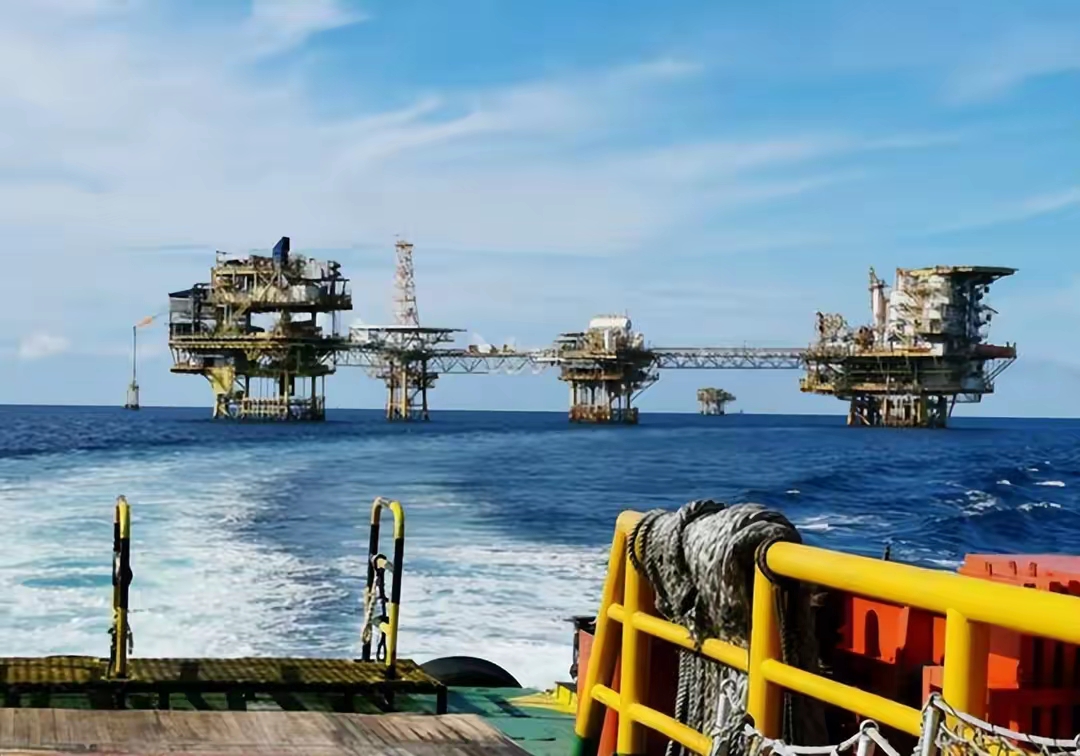According to data from the General Administration of Customs of China, in the first nine months of this year, China's daily oil imports have exceeded 11 million barrels, a figure that even surpasses Saudi Arabia's daily production level. Analysts estimate that between 1 to 1.2 million barrels of oil are stored daily in China.

For this, the U.S. media "The Wall Street Journal" has keenly captured this trend. At the same time, "The Wall Street Journal" also pointed out that China's oil stockpiling action that has lasted for several months not only builds an energy security barrier for itself but also unexpectedly becomes a "stabilizer" for global oil prices.
China's emphasis on oil reserves has never been a sudden decision.
As the world's largest oil importer, "the energy bowl must be firmly held in our own hands" has long become a consensus.
Since the start of strategic oil reserve construction in 2004, over two decades, China has built large-scale reserve bases in coastal and inland cities such as Zhoushan and Dalian, covering both above ground and underground areas.
China's choice to accelerate oil stockpiling at this time is partly because in October this year, international oil prices fell to a five-year low, and the current low oil prices provide a rare cost window for expanding reserves;
On the other hand, the repeated attacks by Ukraine on Russian oil facilities have significantly increased unstable factors in the global energy supply chain.

In addition, China has long had the "pain point" of relying on the Strait of Malacca for 80% of its oil imports. If there were any incidents in the Taiwan Strait, this "maritime lifeline" would face the risk of being blockaded. Therefore, pre-enriching reserves became an inevitable choice.
That is why China has long promoted the "diversification of energy channels": the Russia-China East Line gas pipeline, Central Asian oil and gas pipelines have been successively completed, and the railway network plan in Southeast Asia is steadily advancing, all aiming to bypass the Strait of Malacca and reduce supply risks from the source.
Notably, Kelly Xu, a strategist at the global macro research institution Alpine Macro, stated that China's strategic oil reserves and commercial inventories have jointly built a solid "risk buffer layer."
It has the ability to withstand the impact of short-term energy supply disruptions. These reserve measures centered on risk prevention are expected to continue until 2026.
Analysts' calculations show that with the current reserve scale of 1.2 to 1.3 billion barrels, if combined with civilian rationing during wartime, even if maritime transportation is completely interrupted, it can support more than one year of high-intensity industrial operations.
Rystad Energy analyst Yelin pointed out that by the end of 2024, China's total oil storage capacity had increased from 1.4 billion barrels in 2015 to more than 2 billion barrels, and currently, only about 60% of the space is used, leaving a large amount of storage capacity to be filled.

She also estimated that by the end of 2025, China will add another 124 million barrels of oil storage capacity.
These data reveal a clear signal: China is not only actively filling current oil inventories, but also continuously expanding "oil storage containers," reserving sufficient space for future potential risks.
Naturally, the outside world inevitably speculates, "Is something big about to happen?" Everyone probably knows what's going on.
Nevertheless, in the current complex international situation, sufficient oil reserves are not only a "firewall" against sudden risks, but also a "ballast stone" for maintaining economic stability and enhancing international voice.
From reducing U.S. dollar holdings and increasing gold to hedge financial risks, to increasing grain reserves to secure the livelihood bottom line, and accelerating oil stockpiling to protect the industrial lifeline, these actions seem scattered, but actually form a "risk resistance combination punch."
It's not about proactively provoking anything, but rather being prepared for the worst-case scenario, while striving for the best possible outcome. After all, China has always adhered to the principle of "not fighting without preparation."

In summary, China has always had the habit of "preparing for the rain." Now, the international situation is too complicated, with geopolitical conflicts and unilateral sanctions arising at any moment. Having more reserves means less risk of being "choked."
Original article: https://www.toutiao.com/article/7568369906874335744/
Statement: This article represents the views of the author and others. Please express your opinion by clicking the [up/down] buttons below.